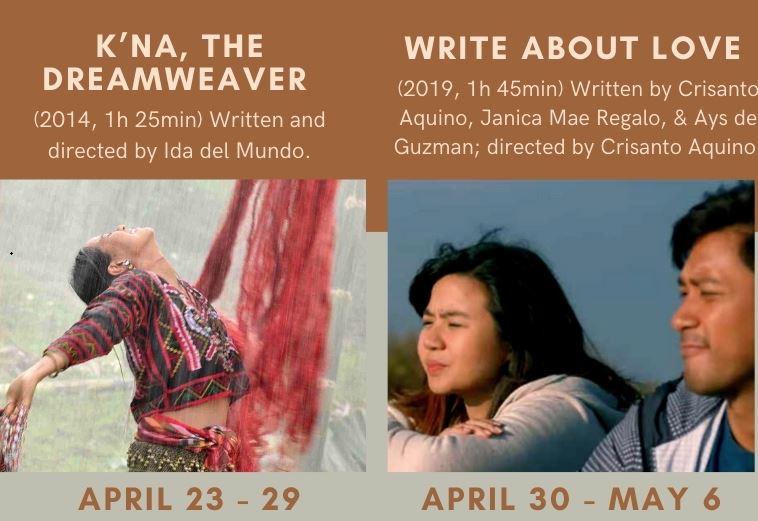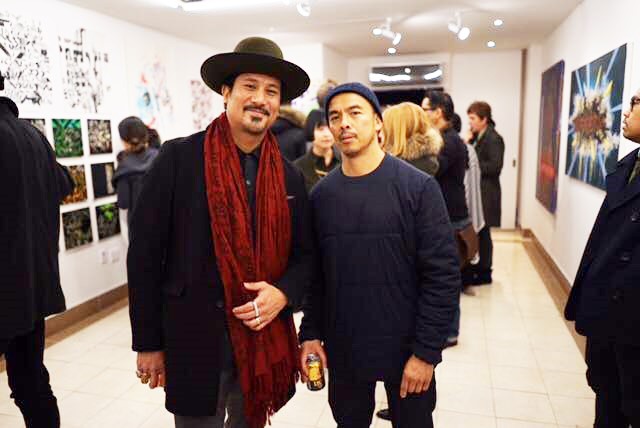NYU-KJCC’s ‘Visions /Panawin’ film series to feature ‘best’ of PHL cinema

By Gil Quito, Curator
As the torch (sulo) illuminates, once-obscured visions (panawin) arise from the dark.
Part of the Sulo: the Philippine Studies Initiative at NYU’s King Juan Carlos I of Spain Center, “Visions/Panawin” aims to showcase a film tradition that is now increasingly being recognized across international film circles. Philippine cinema, which celebrated its 100th anniversary in 2019, has been a major industry in the world’s 12th most populous nation. Indicative of its artistic achievements, it has had several golden ages as referenced in the title of the 2018 MoMA retrospective: A Third Golden Age: Philippine Contemporary Cinema.
Film is one of the favorite art forms that each generation of Filipinos have turned to in efforts to distill, reinterpret, and re-envision their arduous histories that have included clan wars; Spanish, American, and Japanese colonizations; authoritarian regimes; revolutions, both bloody and famously peaceful; and the challenges and opportunities of an increasingly interconnected world that depends on the Philippines as one of its global call-center hubs.
Notions of colonization and de-colonization and their psychological ramifications have been vital issues for centuries in the Philippines and its diaspora. Some of the best films reflect—directly or indirectly—how a nation has dealt with such burdens in ways—self-defeating or self-affirming—resulting in the destruction of indigenous traditions, the survival of local tongues (there are over 70 that persist) and cultures, authoritarianism, resistance, apathy, corruption, loss of self-respect, subversion, resilience, openness to new opportunities and cultures, compassion (a trait made famous by its diaspora of home and first responders), grace, and humor: the myriad ways in which the modern person navigates quickly changing mores and social constructs in a world continuously shrinking and expanding simultaneously.

“Visions/Panawin” can only present the tip of the iceberg of the best of Philippine cinema. It nevertheless hopes to address why we continue to go to movies or plays: to broaden our visions and understanding, to eavesdrop, to discover other worlds, and in the discourse also discover our most authentic selves.
One of the most distinguished companies that have sprung up in the current, internationally-acclaimed surge of Philippine indie films is TBA Studios, born of a vision by its founder, businessman Fernando Ortigas, to leave a cultural legacy to the country. This April, Panawin will focus on four films from TBA Studios.
“Women of the Weeping River,” 2016. Written and directed by Sheron Dayoc
“Heneral Luna,” 2015. Written by Henry Francia, Ed Rocha and Jerrold Tarog, directed by Tarog
“K’na, the Dreamweaver,” 2014. Written and directed by Ida del Mundo
“Write About Love,” 2019. Written by Crisanto Aquino, Janica Mae Regalo, and Ays de Guzman, directed by Aquino
Gil Quito has co-organized the annual summer film festival at the Philippine Consulate in New York since 2010 and was Consultant for the MoMA’s 2018 retrospective “A Third Golden Age: Philippine Contemporary Cinema.” Associate or executive producer credits: Laurice Guillen’s “American Adobo,” Lav Diaz’s “From What Is Before” and “Children of the Storm,” and Sheron Dayoc’s “Mientras Su Durmida.” Screenplay credits: Gil Portes’ “Merika” and Mike de Leon’s “Itim/Rites of May.” — NYU-KJCC










